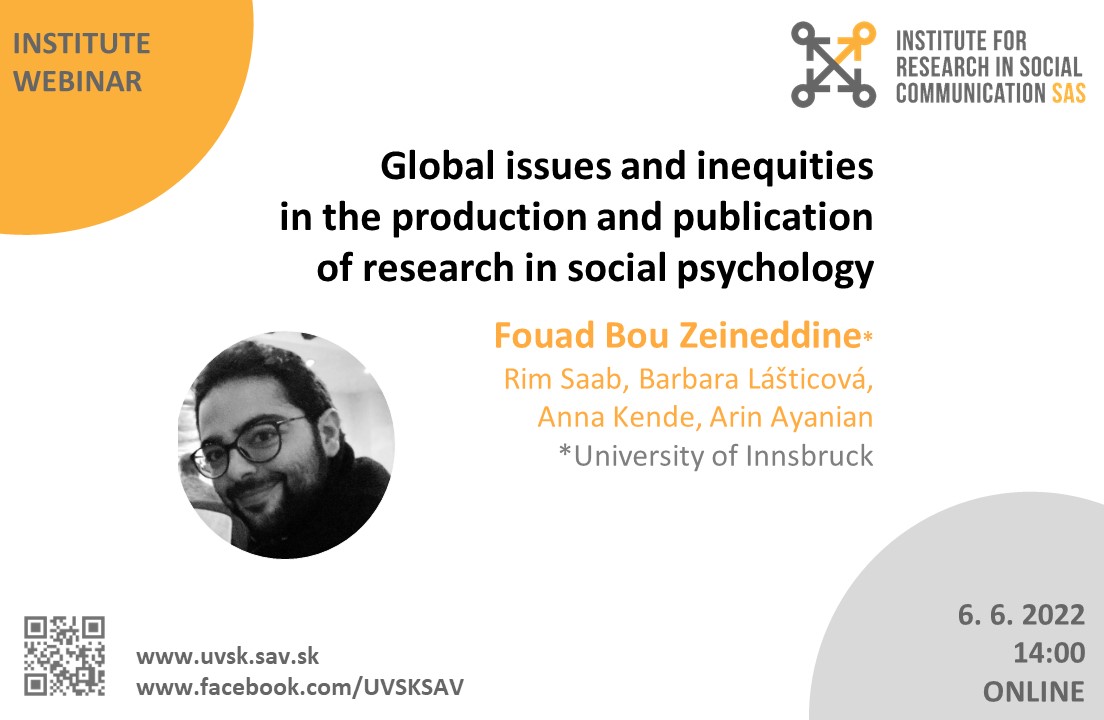Dear colleagues,
We cordially invite you to the Institute Seminar entitled “Global issues and inequalities in the production and publication of research in social psychology”, where we will welcome a guest. Fouad Bou Zeineddine as a presenting author (on behalf of the author collective – Rim Saab, Barbara Lasticova, Anna Kende, Arin Ayanian) will share the results of a study on global issues and inequalities in the publication of research findings in social psychology. The authors investigated whether inequalities and coloniality are reinforced in contemporary social psychology – in its systems of knowledge production and dissemination. Please feel free to pass this information on to your colleagues.
The seminar will take place online. If you are interested in participating, please fill out this form.
On the day of the seminar, you will be sent Zoom meeting access details. The maximum number of participants outside of the institute is 50 persons.
Link to the Facebook event: https://fb.me/e/4O845b9cE
We are looking forward to meeting you!
Global issues and inequities in the production and publication of research in social psychology
Fouad Bou Zeineddine, University of Innsbruck
(co-authors: Rim Saab, Barbara Lasticova, Anna Kende, Arin Ayanian)
Monday 6.6. 2022, 14:00 – 15:30 CET, online
Modern systems of knowledge production and dissemination reinforce inequalities and coloniality. We investigated whether this was the case in contemporary social psychology. We examined manifestations of coloniality of knowledge (internalized Global North research standards and practices) and critical awareness and reflection (awareness of/historic and systemic attributions for collective disadvantages in research production and publication) in social psychology in a survey of social psychologists in 64 countries (N = 232). Although colleagues in the Global South and Southern and Eastern Europe adopted Global Northern research standards and tendencies, their compliance seemed motivated by institutional demands and pragmatic concerns rather than principled conviction. Participants from all regions (most prominently outside the Global North) reported biases, under-representation, lack of relevance, and structural inequalities and disadvantages in social psychological research and publication. Participants (especially non-Northerners) mainly gave systemic attributions for these and other disadvantages. These findings suggest that social psychologists engaged with international social psychological research are caught in a double-bind between systemic collective disadvantages and coerced compliance with these systems. Discussion focuses on the implications of these results for social psychologists, for social psychology as a discipline, and for social psychological research as a global public good.







